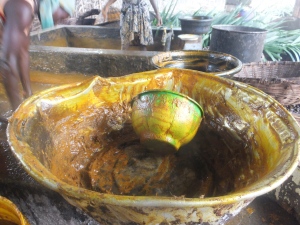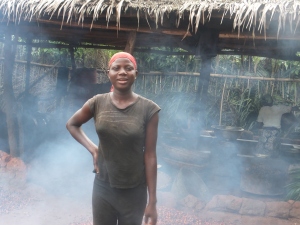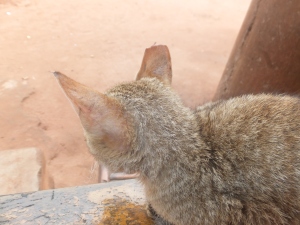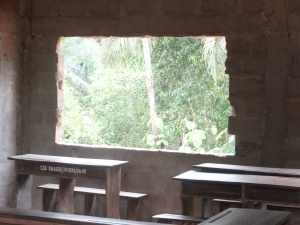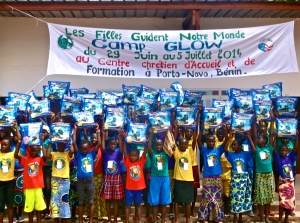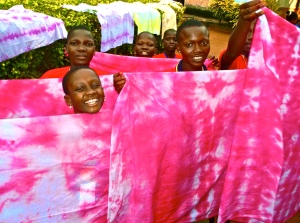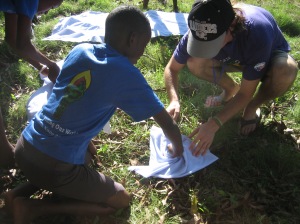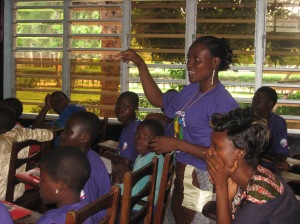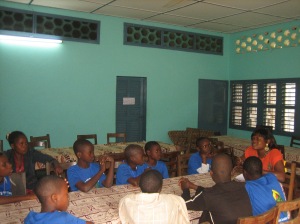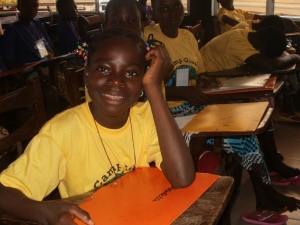Some days, whether in America or in Benin, it’s hard to get motivated.
It’s hard to keep fighting the good fight, to keep working to promote justice and education and tolerance when everything else seems like it’s conspiring against you. It’s hard to keep working when it’s so much easier to stop fighting, to let fate take you where it will, to curl up with a warm drink (if you’re in America) or a cold drink (if you’re in Benin) and say, “oh well, I tried.”
On those days, you have to look for sources of inspiration and motivation.
Yesterday, I found a new source of motivation: a Ghanian woman named Doris.
First some background. While I was in business school, I interned part time with an organization called ABAN: A Ban Against Neglect. They do three main things:
1. Bring in girls and young women in vulnerable situations in Ghana, and put them through a two year program. Typically these are girls from rural villages who ran away to the city, had no way of supporting themselves, and may have gotten involved with a sugar daddy in order to get enough food and clothing. Some of them have babies. ABAN gets them out of the city, and gives them training in literacy, health/life skills, financial literacy, and sewing, so they will have a trade when the leave the center.
2. Recycle plastic “sachets” of water. Used throughout West Africa, “pure wata” as it is known in Benin, is a means of getting more or less clean water, through half liter plastic bags. But used bags are all over the ground, polluting cities. ABAN collects them.
3. “Upcycles” the plastic bags, pairing them with hand-dyed batik fabric, and makes bags, purses, and other products that they sell in the US. They just released their new Fall 2014 line of products and I am about to go on a shopping spree myself.
Where does Doris come in? Doris is the programs coordinator in Ghana. That means she works with the girls, acting as part social worker, part friend, part mother, and part teacher. She is applying for a fellowship, and she and ABAN published her application essay on their website.
You can read the full essay here, but l’d like to share a short excerpt.
There are communities that still believe girls are only good when they have men by their sides and will never shine by themselves. As such, there are a lot of girls and women who are wasting away untapped potential in themselves that they may never know they have….
Many of the people in the villages that would want to access this help are unable because of financial constraints. Even if some are able to break through and make it, there is little incentive to go back into their communities and help it develop. This means the community remains underdeveloped, the mindsets of the local people never change, and the abuse of girls continues.
So what if help could be sent to the young women in these villages, to be empowered and trained to lead the next generation of children to sustainable community building?
…
For most of these women, all they need is someone to be there and be available, to listen and to lead them through the process. Someone to encourage and applaud their little efforts that when seen together, could transform their community.
Doris’ essay is a powerful reminder that girls matter, and that even small actions can have a big impact. It’s also a great reminder that African women are working to empower each other, and that their strength, energy and determination are making a difference in the lives of individuals and communities.
Sometimes, it’s nice to know that you’re not alone in the fight – you’ve got allies who are fighting alongside with you.










